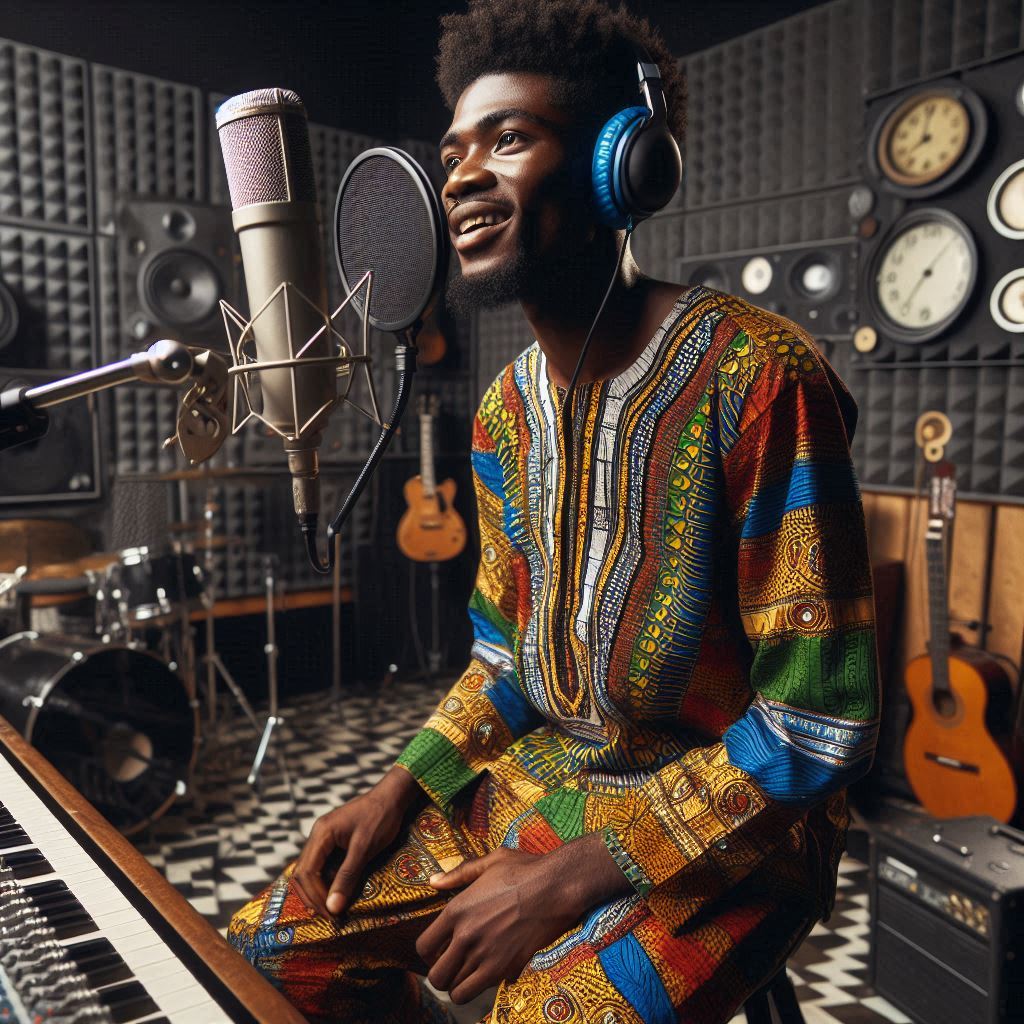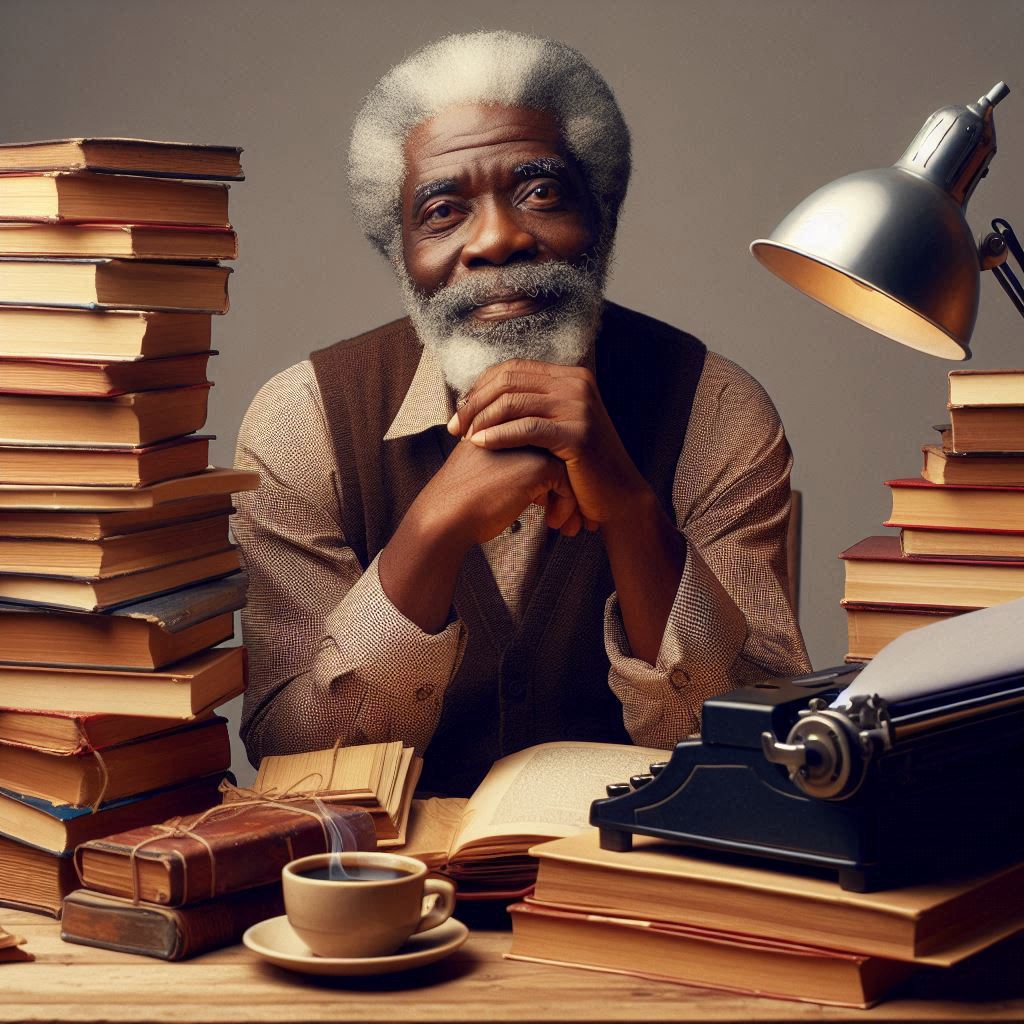Introduction
Performing arts festivals in Nigeria play a crucial role in promoting culture and entertainment.
The country’s diverse and vibrant performing arts scene showcases a rich tapestry of traditional and contemporary performances.
Nigeria’s festivals offer a platform for artists to showcase their talents and engage with audiences, fostering a sense of community and cultural exchange.
The festivities often feature a variety of theatrical productions, music performances, dance showcases, storytelling sessions, and visual arts exhibitions.
These festivals celebrate the country’s rich cultural heritage and provide a space for creativity, innovation, and collaboration among local and international artists.
Nigerian performing arts festivals contribute to the development of the creative industry, boosting tourism, and creating economic opportunities for artists and arts organizations.
The events attract large audiences, both locally and internationally, highlighting the growing interest in Nigerian arts and culture.
Overall, performing arts festivals in Nigeria serve as a powerful platform for artistic expression, cultural preservation, and social cohesion.
The Role of Performing Arts Festivals in Nigeria
Performing arts festivals in Nigeria play a crucial role in promoting cultural exchange and openness in the country.
These festivals serve as platforms for artists to showcase their talents and for audiences to experience diverse cultural expressions.
Promoting Cultural Exchange
- Performing arts festivals bring together artists from different regions of Nigeria and even from other countries.
- Through collaborations and interactions at these festivals, artists exchange ideas, techniques, and cultural practices.
- This exchange of cultural capital leads to a better understanding and appreciation of diverse traditions and artistic forms.
- Visitors to these festivals have the opportunity to engage with various cultural expressions, music, dance, theater, and storytelling.
Showcasing Traditional and Contemporary Nigerian Talent
- Performing arts festivals showcase the rich cultural heritage of Nigeria, including traditional music, dance, and theater forms.
- Traditional Nigerian performances like masquerade dances, folklore storytelling, and cultural rituals are often featured in these festivals.
- Contemporary Nigerian artists also get a platform to present innovative and experimental works that blend traditional elements with modern influences.
- The festivals provide a space for young and emerging talents to gain exposure and recognition, contributing to the growth of the Nigerian arts scene.
In essence, performing arts festivals in Nigeria serve as catalysts for cultural exchange and artistic innovation.
These festivals not only celebrate the diversity of Nigerian culture but also showcase the talent and creativity of its artists.
By providing a platform for artists to collaborate, learn, and create, these festivals contribute to the vibrant cultural landscape of Nigeria.
As Nigeria continues to nurture its artistic community and support the growth of performing arts, festivals will play an essential role in shaping the country’s cultural identity.
The impact of these festivals goes beyond entertainment, fostering a sense of pride, unity, and creativity among Nigerians while attracting the attention of the global arts community.
In short, performing arts festivals in Nigeria are vital for promoting cultural exchange, showcasing traditional and contemporary talent, and shaping the country’s cultural identity.
Read: Understanding Mental Health Laws in Nigeria
Overview of Major Performing Arts Festivals in Nigeria
Nigeria hosts a vibrant array of performing arts festivals that showcase its rich cultural heritage.
These festivals celebrate theater, music, dance, and literature.
They attract artists and audiences from across the country and beyond.
Highlighting some of the most popular festivals provides insight into Nigeria’s dynamic arts scene.
Lagos Theatre Festival
The Lagos Theatre Festival (LTF) stands as a premier event in Nigeria’s performing arts calendar.
Founded in 2013 by the British Council, it promotes contemporary theater in Lagos.
The festival features performances in unconventional spaces like cafes, parks, and historical sites, offering a unique theatrical experience.
LTF focuses on experimental and innovative productions.
It provides a platform for emerging and established artists to showcase their talents.
The festival includes workshops, panel discussions, and networking opportunities, fostering collaboration within the arts community.
LTF’s inclusive approach engages diverse audiences, making theater accessible to all.
Jos Festival of Theatre
The Jos Festival of Theatre is another prominent event, held annually in Jos.
It began in 2004, organized by the Jos Repertory Theatre.
This festival emphasizes classical and contemporary plays, bridging traditional and modern theatrical expressions.
The festival aims to revive interest in theater among young people.
It features a mix of local and international plays, highlighting diverse storytelling traditions.
The Jos Festival of Theatre also includes acting workshops, playwriting seminars, and discussions on theatrical techniques.
Its focus on education and engagement nurtures new talent and enriches the cultural landscape.
Aké Arts and Book Festival
The Aké Arts and Book Festival, established in 2013, celebrates literature, music, film, and visual arts.
Held in Abeokuta, it honors the birthplace of renowned writer Wole Soyinka.
The festival attracts a wide range of artists, writers, and intellectuals from Nigeria and beyond.
Aké Festival’s unique feature is its interdisciplinary approach.
It includes book readings, panel discussions, film screenings, and art exhibitions.
The festival promotes African literature and arts, emphasizing themes of identity, history, and social justice.
It also offers writing workshops and mentorship programs, supporting the development of young writers.
Unique Features and Themes
Each of these festivals has unique features and themes.
The Lagos Theatre Festival’s use of unconventional spaces challenges traditional theater norms.
It encourages creativity and innovation in performance.
The Jos Festival of Theatre’s focus on classical and contemporary plays bridges different theatrical traditions.
It fosters a deeper appreciation of theater’s evolving nature.
The Aké Arts and Book Festival’s interdisciplinary approach sets it apart.
It creates a holistic cultural experience, integrating various art forms.
This festival’s emphasis on African literature and arts highlights the continent’s rich intellectual and creative heritage.
Overall, Nigeria’s major performing arts festivals—Lagos Theatre Festival, Jos Festival of Theatre, and Aké Arts and Book Festival—each offer unique contributions to the cultural landscape.
These festivals showcase diverse artistic expressions, foster talent, and engage audiences.
By highlighting the unique features and themes of each festival, we appreciate the richness and diversity of Nigeria’s performing arts scene.
Exploring these festivals provides a deeper understanding of Nigeria’s vibrant cultural heritage.
Read: How Nigerian Schools Address Student Psychology
Cultural Impact of Performing Arts Festivals
Performing arts festivals in Nigeria play a significant role in preserving and promoting the country’s rich cultural heritage.
These festivals serve as platforms for showcasing traditional dances, music, and storytelling that are deeply rooted in Nigerian culture.
Preservation of Nigerian Culture
One of the most crucial cultural impacts of performing arts festivals is their role in preserving Nigeria’s diverse cultural traditions.
These festivals provide a space for artists and performers to showcase traditional dances, music, and storytelling that have been passed down through generations.
By highlighting these cultural practices, festivals help to keep them alive and ensure that they are not lost to future generations.
Additionally, performing arts festivals in Nigeria often feature performances that celebrate the country’s history, folklore, and values.
Through these performances, audiences are able to learn about and appreciate the unique cultural heritage of Nigeria, fostering a sense of pride and connection to their roots.
Promotion of Nigerian Culture
Performing arts festivals also play a crucial role in promoting Nigerian culture both nationally and internationally.
These festivals attract a diverse audience, including locals, tourists, and international visitors, who have the opportunity to experience the richness and diversity of Nigerian cultural traditions.
Furthermore, performing arts festivals provide a platform for Nigerian artists to showcase their talent and creativity on a global stage.
This not only helps to promote Nigerian culture but also contributes to the country’s reputation as a hub for artistic expression and creativity.
Influence on Tourism and Local Economies
Performing arts festivals have a significant impact on tourism in Nigeria, attracting both domestic and international visitors who are eager to experience the country’s vibrant cultural scene.
These festivals serve as a major draw for tourists, contributing to the growth of the tourism industry and boosting local economies.
Additionally, the influx of visitors during performing arts festivals stimulates economic activity in the host communities, benefiting local businesses such as hotels, restaurants, and souvenir shops.
This not only helps to generate revenue but also creates job opportunities and supports the overall growth and development of the local economy.
Essentially, performing arts festivals in Nigeria have a profound cultural impact, serving as platforms for preserving and promoting the country’s rich cultural heritage.
These festivals also play a crucial role in promoting Nigerian culture on a global scale and contribute to the growth of the tourism industry and local economies.
Overall, performing arts festivals are essential for celebrating and showcasing the diverse cultural traditions that make Nigeria a unique and vibrant country.
Read: Psychology and Counseling Services in Nigerian Schools

Opportunities for Artists and Performers
Popular performing arts festivals in Nigeria create significant opportunities for both emerging and established artists.
These festivals serve as crucial platforms, offering exposure, networking, and career advancement. Participating in such events can greatly enhance an artist’s visibility and professional trajectory.
Platforms for Emerging Artists
Festivals like the Lagos Theatre Festival, Jos Festival of Theatre, and Aké Arts and Book Festival provide invaluable platforms for emerging artists.
These festivals offer young and lesser-known artists the chance to showcase their talents to wider audiences.
By performing at these prestigious events, new artists gain credibility and recognition within the arts community.
Young artists often struggle with limited exposure and opportunities.
These festivals bridge that gap by providing a stage where they can present their work alongside established artists.
This exposure can lead to further opportunities, such as invitations to other festivals, collaborations, and media coverage.
Opportunities for Established Artists
Established artists also benefit significantly from these festivals.
Participating in well-regarded festivals helps maintain and enhance their public profiles.
They can introduce new work, experiment with different forms, and engage with diverse audiences.
These festivals often attract critics, curators, and international representatives, offering established artists the chance to reach global markets.
For instance, performing at the Aké Arts and Book Festival can connect an artist with publishers, literary agents, and other key industry players.
Such connections can lead to international tours, book deals, and other career-enhancing opportunities.
Similarly, the Lagos Theatre Festival and Jos Festival of Theatre draw attention from major media outlets, amplifying the reach of participating artists.
Enhancing Visibility and Career Growth
Participating in these festivals can significantly boost an artist’s visibility.
Festivals are well-publicized events, often covered extensively by media and promoted on social media.
This coverage helps artists reach new and broader audiences.
High visibility can lead to increased ticket sales, more bookings, and greater fan engagement.
Artists gain valuable feedback and insights from performing at these festivals.
Interaction with diverse audiences and industry professionals provides constructive criticism and new perspectives.
This feedback can help artists refine their craft, innovate, and improve their future performances.
Additionally, festivals often include workshops and masterclasses, offering artists opportunities for professional development.
Networking and Collaboration
Festivals facilitate networking among artists, producers, and industry stakeholders.
These interactions can lead to fruitful collaborations, partnerships, and projects.
For example, an artist might meet a director interested in their work, leading to a new production.
Networking at festivals can also open doors to international residencies, grants, and funding opportunities.
Collaborations formed at festivals often result in cross-disciplinary projects, blending various art forms.
Such projects can expand an artist’s creative horizons and reach.
By working with others, artists can explore new techniques, styles, and ideas, enriching their artistic practice.
Read: Psychological Impact of COVID-19 on Nigerians
Challenges and Future Prospects
Performing arts festivals in Nigeria face several challenges, including funding and infrastructure issues.
Despite their cultural significance, these festivals often struggle to secure adequate financial support.
Addressing these challenges is crucial for the sustainability and growth of Nigeria’s performing arts scene.
Funding Challenges
One major challenge is the lack of consistent funding.
Many festivals rely on irregular sponsorships and donations, making financial planning difficult.
Government support is often limited, leaving organizers dependent on private sponsors who may have fluctuating interests.
This financial instability hampers the ability to plan and execute high-quality events.
Limited funding affects all aspects of festival organization.
It restricts marketing efforts, reduces the quality of productions, and limits the ability to attract international acts.
Without sufficient funds, festivals struggle to provide necessary infrastructure, such as stages, sound systems, and lighting.
This can diminish the overall experience for both performers and audiences.
Infrastructure Issues
Infrastructure poses another significant challenge.
Many cities in Nigeria lack suitable venues for large-scale performances.
Existing venues often require significant upgrades to meet modern technical requirements.
The absence of proper infrastructure can lead to logistical problems and safety concerns during events.
Transportation and accommodation for artists and audiences also present challenges.
Poor road conditions and limited public transport options can deter participation and attendance.
Accommodation shortages in host cities can further complicate logistics, especially for international participants.
These infrastructure issues add to the complexity and cost of organizing festivals.
Potential Strategies to Overcome Challenges
Addressing these challenges requires a multifaceted approach.
Increased government support can provide the necessary financial stability.
Allocating funds specifically for the arts can help festivals secure the resources they need.
Public-private partnerships can also play a vital role in ensuring consistent funding.
Creating dedicated arts funds or grants can support festival organizers.
These funds can be used to cover operational costs, improve infrastructure, and attract high-caliber acts.
Encouraging corporate sponsorships and philanthropy can also provide financial support.
Engaging businesses as partners can offer mutual benefits, such as branding opportunities and community engagement.
Improving infrastructure is crucial for the sustainability of performing arts festivals.
Investing in the construction and renovation of performance venues can enhance the quality of festivals.
Upgrading technical equipment and facilities ensures that events meet modern standards.
This investment can attract more participants and elevate the festival experience.
Enhancing transportation and accommodation options is also essential.
Developing better road networks and public transport systems can facilitate easier access to festival venues.
Building more hotels and guesthouses can accommodate artists and attendees, making participation more convenient.
Future Prospects
Despite these challenges, the future of Nigerian performing arts festivals holds promise.
Increasing awareness about the cultural and economic benefits of these festivals can garner more support.
Showcasing the positive impact on tourism and local economies can encourage investment.
Leveraging digital platforms can expand the reach of festivals.
Streaming performances and using social media for promotion can attract global audiences.
Digital engagement can also create additional revenue streams through virtual tickets and online merchandise sales.
Most importantly, Nigerian performing arts festivals face funding and infrastructure challenges.
Addressing these issues requires increased support, strategic partnerships, and infrastructure improvements.
By overcoming these challenges, Nigeria can ensure the sustainability and growth of its vibrant performing arts scene.
The future prospects for these festivals are bright, with the potential for significant cultural and economic impact.
Conclusion
Throughout this discussion, we delved into the vibrant tapestry of Nigeria’s performing arts festivals, from the eclectic offerings of the Lagos Theatre Festival to the literary delights of the Aké Arts and Book Festival.
These events serve as crucial platforms, nurturing both emerging talents and established artists.
We explored the diverse opportunities these festivals provide, propelling artists to new heights of visibility and career advancement.
Yet, amidst the celebration, challenges loom large.
Funding uncertainties and infrastructure limitations threaten the sustainability of these cultural showcases.
However, there is hope.
By fostering stronger partnerships, investing in infrastructure, and promoting public awareness, these challenges can be surmounted.
The importance of supporting and celebrating Nigeria’s rich performing arts culture cannot be overstated.
These festivals are not mere entertainment; they are embodiments of Nigeria’s cultural identity, expressions of its creativity, and catalysts for social cohesion.
They celebrate the nation’s diverse heritage and contribute to its economic growth.
As we look to the future, let us pledge to champion Nigeria’s performing arts festivals.




